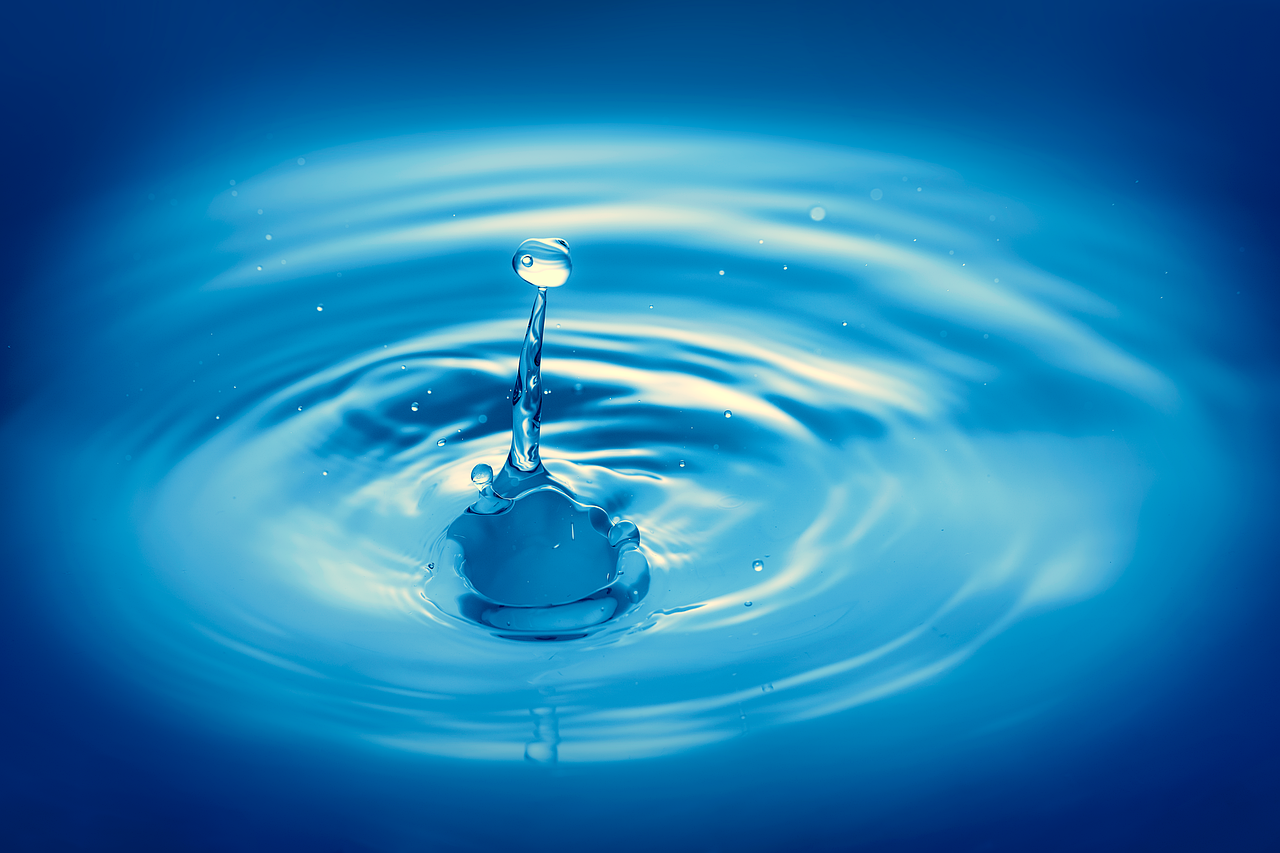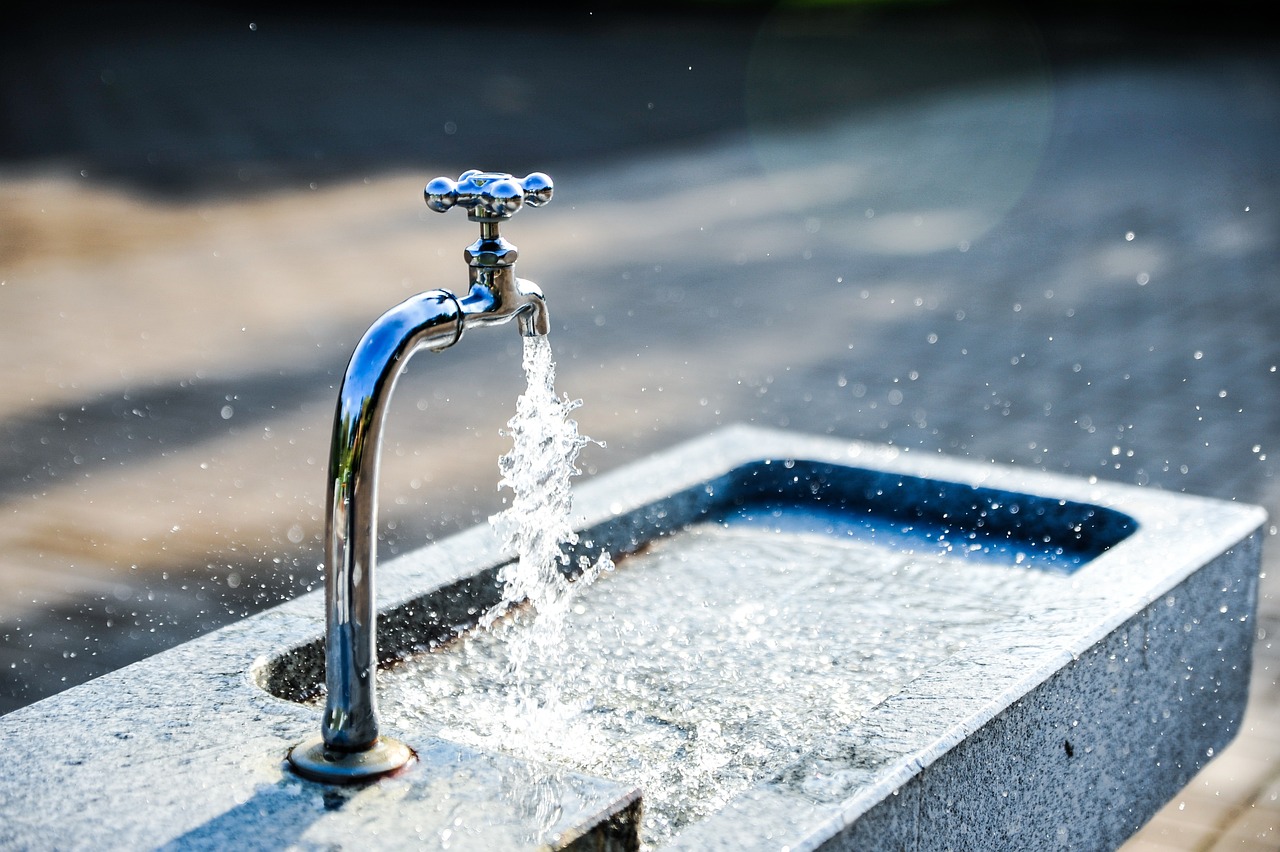This article delves into effective methods for quickly shedding water weight. It offers practical tips and insights to assist readers in achieving their slimming goals efficiently and safely.
Understanding Water Weight
Water weight refers to the excess fluid retained in the body, often influenced by factors such as diet, hydration, and hormonal changes. Understanding its causes is essential for effective weight management. Water retention can lead to temporary weight gain, which can be frustrating for those looking to slim down.
Common Causes of Water Retention
- High Sodium Intake: Consuming too much sodium can cause the body to hold onto water.
- Hormonal Fluctuations: Changes in hormones, especially during the menstrual cycle, can lead to increased water retention.
- Medical Conditions: Certain health issues, such as kidney or heart problems, can also contribute to fluid retention.
Dietary Factors
Diet plays a significant role in water retention. Foods high in sodium can lead to increased fluid retention, while a balanced diet can help mitigate this effect.
High Sodium Foods to Avoid
- Processed foods
- Canned soups
- Salty snacks
Reducing the intake of these items can significantly decrease water retention.
Hydrating Foods to Include
Incorporating hydrating foods like cucumbers, watermelon, and leafy greens can aid in reducing water weight by promoting better hydration and flushing out excess fluids.
Effective Strategies for Losing Water Weight
Implementing specific strategies can help accelerate the process of losing water weight, making it easier to achieve your desired body shape.
Increase Water Intake
Ironically, drinking more water can help reduce water retention. Adequate hydration encourages the body to release excess fluids instead of holding onto them.
Limit Carbohydrate Consumption
Reducing carbohydrate intake can lead to rapid water weight loss, as glycogen stored in the muscles binds with water. Lowering carbs can deplete glycogen and release water.
Natural Diuretics to Consider
Certain natural diuretics can aid in flushing out excess water from the body. These include herbs and foods known for their diuretic properties.
Caffeine as a Diuretic
Caffeine can act as a natural diuretic, promoting increased urination and helping reduce water weight. However, moderation is key to avoid dehydration.
Herbal Teas for Water Loss
Herbal teas, such as dandelion or green tea, are known for their diuretic effects. Incorporating these teas can enhance fluid elimination and support weight loss efforts.
Exercise and Its Role in Water Weight Loss
Regular physical activity can facilitate the loss of water weight through sweating and increased metabolism, contributing to overall weight management.
Cardiovascular Workouts
Engaging in cardiovascular exercises like running, cycling, or swimming can promote sweating, helping the body release excess water quickly.
Strength Training Benefits
Strength training not only builds muscle but also enhances metabolism, which can aid in the gradual loss of water weight over time.
When to Seek Medical Advice
While water retention is often harmless, persistent or severe cases may indicate underlying health issues. Knowing when to consult a healthcare professional is important for overall well-being.
Signs of Serious Conditions
- Swelling
- Pain
- Sudden weight gain
These symptoms may signal serious conditions like kidney or heart issues. Seeking medical advice in these cases is crucial.
Managing Chronic Water Retention
For individuals experiencing chronic water retention, a healthcare provider can offer tailored advice and treatment options to address underlying causes effectively.
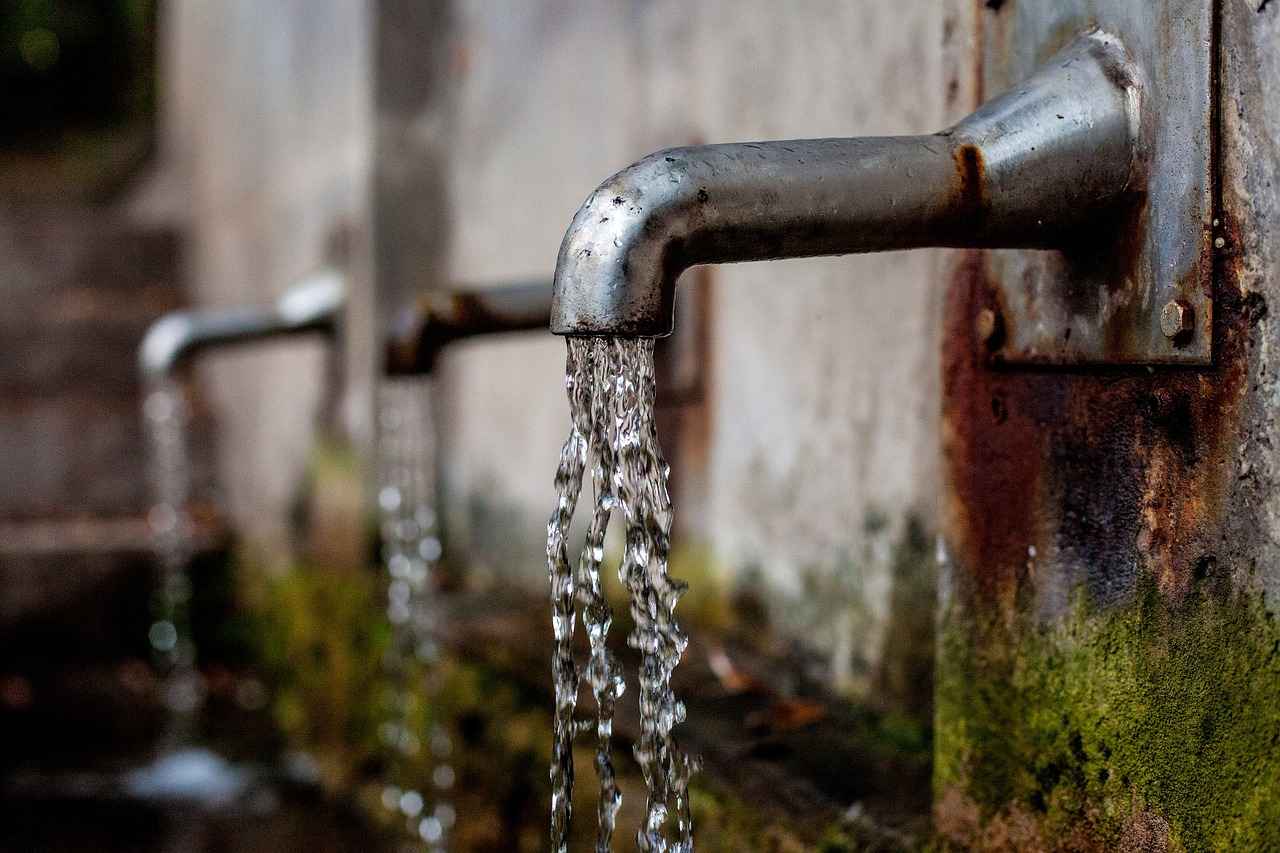
Understanding Water Weight
Understanding water weight is crucial for anyone looking to manage their body weight effectively. Water weight refers to the excess fluid that the body retains, which can fluctuate due to various factors. This phenomenon is often temporary, yet it can significantly impact daily weight readings and overall body composition.
Several factors contribute to water retention, including dietary choices, hydration levels, and hormonal changes. By recognizing these influences, individuals can better navigate their weight management strategies.
Water retention can stem from a range of causes:
- High Sodium Intake: Consuming foods rich in sodium can lead to increased fluid retention as the body holds onto water to balance sodium levels.
- Hormonal Fluctuations: Hormones play a pivotal role, especially during the menstrual cycle, where women may experience temporary weight gain due to hormonal shifts.
- Medical Conditions: Certain health issues, such as kidney disease or heart failure, can also lead to chronic water retention.
The foods you consume can either exacerbate or alleviate water retention:
- High Sodium Foods to Avoid: Processed foods, canned soups, and fast food are notorious for their high sodium content. Reducing these can significantly decrease water retention.
- Hydrating Foods to Include: Foods like cucumbers, watermelon, and leafy greens are excellent for hydration and can help flush out excess fluids.
Hormonal changes, particularly during menstruation, can cause women to retain water. This is often temporary and should be managed with a balanced diet and proper hydration. Recognizing these cycles can help in setting realistic weight loss expectations.
To effectively lose water weight, consider the following strategies:
- Increase Water Intake: Ironically, drinking more water can help reduce water retention. Adequate hydration signals the body to release excess fluids.
- Limit Carbohydrate Consumption: Reducing carbs can lead to rapid water weight loss, as glycogen stored in the muscles binds with water. Lowering carb intake can deplete glycogen and release water.
Incorporating natural diuretics can aid in flushing out excess water:
- Caffeine: Found in coffee and tea, caffeine can act as a natural diuretic, promoting increased urination.
- Herbal Teas: Teas like dandelion or green tea are known for their diuretic properties and can enhance fluid elimination.
Regular physical activity is essential for shedding water weight:
- Cardiovascular Workouts: Engaging in activities like running or cycling promotes sweating, helping the body release excess water.
- Strength Training: Building muscle through strength training can enhance metabolism, aiding in the gradual loss of water weight.
While water retention is often harmless, persistent or severe cases may indicate underlying health issues. Symptoms such as swelling, pain, or sudden weight gain should prompt a consultation with a healthcare professional.
In summary, understanding water weight is essential for effective weight management. By recognizing its causes and implementing practical strategies, individuals can navigate their weight loss journeys more effectively.
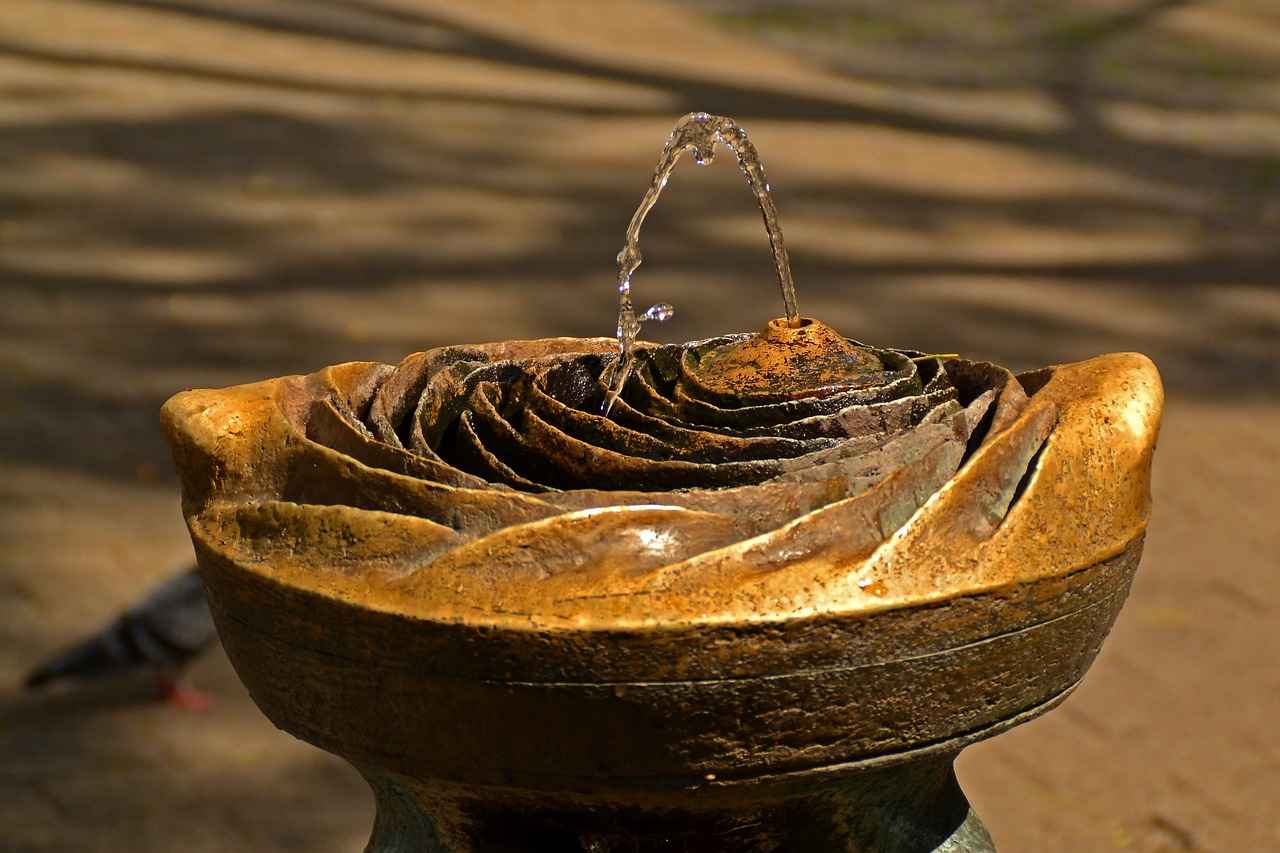
Common Causes of Water Retention
Water retention, often referred to as edema, is a common condition that many individuals experience at some point in their lives. Understanding the is essential for developing effective strategies to manage it. This section will delve into the various factors that contribute to this phenomenon, providing insights that can help you make informed decisions about your health.
Dietary Factors
- High Sodium Intake: One of the primary culprits of water retention is a diet high in sodium. Sodium attracts water, causing the body to hold onto excess fluid. Processed foods, canned soups, and salty snacks are notorious for their high sodium content. Reducing sodium intake can significantly alleviate water retention.
- Low Potassium Levels: Potassium helps balance sodium levels in the body. A diet low in potassium can exacerbate water retention. Foods rich in potassium, such as bananas, sweet potatoes, and spinach, can help counteract sodium’s effects.
Hormonal Fluctuations
- Menstrual Cycle: Many women experience water retention due to hormonal changes during their menstrual cycle. Increased levels of estrogen can lead to fluid retention, causing bloating and weight fluctuations.
- Pregnancy: Hormonal changes during pregnancy can also contribute to water retention. The body retains fluid to support the growing fetus, leading to swelling in various areas.
Medical Conditions
- Heart and Kidney Issues: Certain medical conditions can lead to chronic water retention. Heart disease can impair the heart’s ability to pump blood effectively, causing fluid to accumulate in the body. Similarly, kidney problems can hinder the body’s ability to eliminate excess fluid.
- Liver Disease: Liver dysfunction can also lead to fluid retention. The liver plays a crucial role in regulating fluid balance, and any impairment can result in swelling.
Medications
- Certain Medications: Some medications, such as corticosteroids and non-steroidal anti-inflammatory drugs (NSAIDs), can cause water retention as a side effect. If you suspect your medication is contributing to water retention, consult your healthcare provider for alternatives.
Physical Inactivity
- Sedentary Lifestyle: Lack of physical activity can lead to poor circulation and fluid accumulation in the lower extremities. Regular exercise promotes blood flow and helps prevent water retention.
Environmental Factors
- Heat and Humidity: Hot weather can cause the body to retain water as a natural response to prevent dehydration. Staying hydrated and cool can help mitigate this effect.
In conclusion, recognizing the is vital for managing this condition effectively. By understanding the dietary, hormonal, medical, and lifestyle factors that contribute to fluid retention, individuals can take proactive steps to reduce its impact on their health. Whether it is adjusting dietary habits, increasing physical activity, or seeking medical advice, being informed empowers you to make choices that enhance your overall well-being.
Dietary Factors
play a crucial role in the body’s ability to manage water retention effectively. The foods we consume can either exacerbate or alleviate this condition, making it essential to be mindful of our dietary choices.
One of the primary culprits of water retention is sodium. Foods that are high in sodium can cause the body to hold onto excess fluids, leading to swelling and bloating. This is particularly common with processed foods, which often contain added salt for flavor preservation. Items such as canned soups, frozen meals, and snack foods like chips can significantly increase sodium intake. Therefore, it is advisable to read nutrition labels carefully and opt for low-sodium alternatives whenever possible.
In contrast, a balanced diet rich in whole foods can help mitigate water retention. Foods that are naturally low in sodium and high in potassium can promote fluid balance in the body. Fruits and vegetables such as bananas, oranges, and leafy greens are excellent sources of potassium and can help counteract the effects of sodium. Additionally, incorporating foods that are high in magnesium, like nuts and seeds, can also support fluid regulation.
Another important aspect of dietary factors is hydration. While it may seem counterintuitive, drinking adequate amounts of water can actually help reduce water retention. When the body is dehydrated, it tends to hold onto fluids as a survival mechanism. Thus, maintaining proper hydration levels can encourage the body to release excess water instead of retaining it. Aim for at least 8-10 glasses of water daily, adjusting based on activity level and climate.
Incorporating hydrating foods into your diet can further aid in reducing water weight. Foods with high water content, such as cucumbers, watermelon, and celery, not only keep you hydrated but also help flush out excess fluids. By focusing on these types of foods, you can promote better hydration and support your body’s natural detoxification processes.
Moreover, it’s essential to consider the timing of meals. Eating smaller, more frequent meals can help manage sodium levels and maintain a balanced intake of nutrients throughout the day. This approach can prevent spikes in sodium intake that often occur with larger meals.
Lastly, be aware of hidden sources of sodium in your diet. Many condiments, sauces, and dressings can contain high levels of sodium. Opting for homemade versions or using herbs and spices for flavor can significantly reduce sodium intake while enhancing the taste of your meals.
In summary, understanding the impact of dietary factors on water retention is vital for effective weight management. By making informed choices about sodium intake, focusing on hydration, and incorporating potassium-rich foods, you can help your body maintain a healthy fluid balance and reduce water weight effectively.
High Sodium Foods to Avoid
Maintaining a healthy diet is essential for overall well-being, and one of the significant factors affecting our health is sodium intake. High sodium foods can lead to water retention, which can cause bloating and discomfort. By identifying and reducing the consumption of these foods, individuals can effectively manage their water weight and improve their health.
Processed foods, canned soups, and salty snacks are among the most notorious culprits of high sodium content. These items are often convenient and readily available, but they can contribute to excessive sodium intake and subsequent water retention. Here’s a closer look at some common high sodium foods to avoid:
- Processed Meats: Items like bacon, sausages, and deli meats are often loaded with sodium for preservation and flavor enhancement. Opting for fresh meats or low-sodium alternatives can significantly reduce sodium consumption.
- Canned Soups: Many canned soups contain high levels of sodium to enhance taste and extend shelf life. Always check labels for low-sodium versions or consider making homemade soups to control sodium levels.
- Salty Snacks: Chips, pretzels, and crackers are typically high in sodium. Choosing unsalted or lightly salted versions can help cut down on sodium intake.
- Fast Food: Meals from fast-food restaurants are often high in sodium due to seasoning and preservation methods. Preparing meals at home allows for better control over sodium levels.
- Condiments: Many condiments, including soy sauce, ketchup, and salad dressings, can be sodium bombs. Opting for low-sodium versions or using herbs and spices for flavor can be beneficial.
- Frozen Meals: Many frozen dinners are loaded with sodium for flavor and preservation. Reading labels and choosing low-sodium options can help mitigate this issue.
Reducing the intake of these high sodium foods can significantly decrease water retention, leading to a more comfortable and healthier body. It’s important to read nutrition labels and be mindful of hidden sodium sources in foods.
In addition to avoiding high sodium foods, incorporating hydrating foods into your diet can further assist in managing water weight. Foods such as cucumbers, watermelon, and leafy greens are not only low in sodium but also help promote hydration and flush out excess fluids from the body.
In conclusion, being aware of high sodium foods and making conscious dietary choices can lead to a healthier lifestyle and effective management of water retention. By focusing on whole, unprocessed foods and being mindful of sodium content, individuals can achieve their health goals more efficiently.
Hydrating Foods to Include
In the pursuit of losing water weight, incorporating hydrating foods into your diet can be a game-changer. These foods not only help in flushing out excess fluids but also promote overall health and well-being. Here are some key hydrating foods to consider:
- Cucumbers: With a water content of about 95%, cucumbers are one of the most hydrating foods available. They are low in calories and high in vitamins, making them an excellent snack or salad ingredient.
- Watermelon: This delicious fruit is composed of approximately 92% water and is rich in antioxidants. Watermelon is not only refreshing but also helps in keeping the body hydrated and reducing bloating.
- Leafy Greens: Vegetables like spinach, kale, and romaine lettuce are packed with water and essential nutrients. They can be easily incorporated into salads, smoothies, or cooked dishes, providing hydration along with vital vitamins.
- Celery: This crunchy vegetable contains about 95% water and is a great source of fiber. Celery can be enjoyed raw, in salads, or as a healthy snack with dips.
- Strawberries: Composed of around 91% water, strawberries are not only hydrating but also rich in vitamin C and antioxidants. They can be enjoyed fresh, in smoothies, or as a topping for yogurt.
- Oranges: With a water content of about 86%, oranges are a delicious way to stay hydrated. They are also a good source of vitamin C and fiber, making them a healthy snack option.
- Tomatoes: These juicy fruits are about 95% water and are versatile in various dishes. They can be used in salads, sauces, or eaten raw, providing hydration and essential nutrients.
Including these foods in your daily diet can significantly aid in reducing water weight and promoting better hydration. By focusing on hydrating foods, you not only support your weight loss goals but also enhance your overall health. Remember, the key is to maintain a balanced diet while prioritizing hydration.
Additionally, pairing these foods with other healthy habits such as regular exercise and adequate water intake can further amplify their benefits. As you incorporate these hydrating foods into your meals, you may notice a decrease in bloating and an overall feeling of lightness, making it easier to achieve your desired body shape.
Hormonal Influences
Hormonal changes play a significant role in the body’s management of fluids, particularly during the menstrual cycle. Many women experience temporary water retention in the days leading up to their period, which can lead to fluctuations in weight and body shape. Understanding these hormonal influences is essential for managing expectations and developing effective weight loss strategies.
During the menstrual cycle, levels of hormones such as estrogen and progesterone fluctuate significantly. These fluctuations can cause the body to retain more water, leading to a feeling of bloating and increased weight on the scale. Typically, this water retention occurs in the luteal phase, which is the period after ovulation and before menstruation begins.
Understanding the physiological mechanisms behind these changes can help individuals better navigate their weight management strategies. For example, during the luteal phase, increased estrogen levels can promote sodium retention, which in turn leads to a higher volume of fluid in the body. Conversely, as menstruation begins and hormone levels drop, the body often sheds this excess fluid, resulting in a rapid decrease in weight.
- Monitor Your Cycle: Keeping track of your menstrual cycle can help you anticipate these fluctuations. By noting when you typically experience water retention, you can adjust your diet and exercise routine accordingly.
- Stay Hydrated: Ironically, drinking enough water can actually help reduce water retention. When the body is well-hydrated, it is less likely to hold onto excess fluids.
- Reduce Sodium Intake: Limiting high-sodium foods before and during your menstrual cycle can help minimize water retention. Focus on a diet rich in whole foods, fruits, and vegetables.
In addition to dietary adjustments, incorporating regular exercise can be beneficial. Physical activity helps to promote circulation and can lead to sweating, both of which assist in reducing water retention. Cardio workouts, in particular, can be effective in flushing out excess fluids from the body.
Another approach to managing water weight during hormonal fluctuations is to consider natural diuretics. Certain foods and herbs, such as parsley, cucumber, and green tea, can support the body’s natural processes in eliminating excess fluid. Including these in your diet can help mitigate the effects of hormonal water retention.
It is also important to recognize that while water retention is a common experience, it can be exacerbated by other factors such as stress, lack of sleep, and certain medications. Therefore, adopting a holistic approach that addresses both hormonal and lifestyle factors is crucial for effective management.
In conclusion, understanding the impact of hormonal changes on water retention can empower individuals to make informed decisions about their health and wellness. By implementing dietary adjustments, staying active, and recognizing the signs of hormonal fluctuations, one can better navigate the challenges of weight management associated with the menstrual cycle.
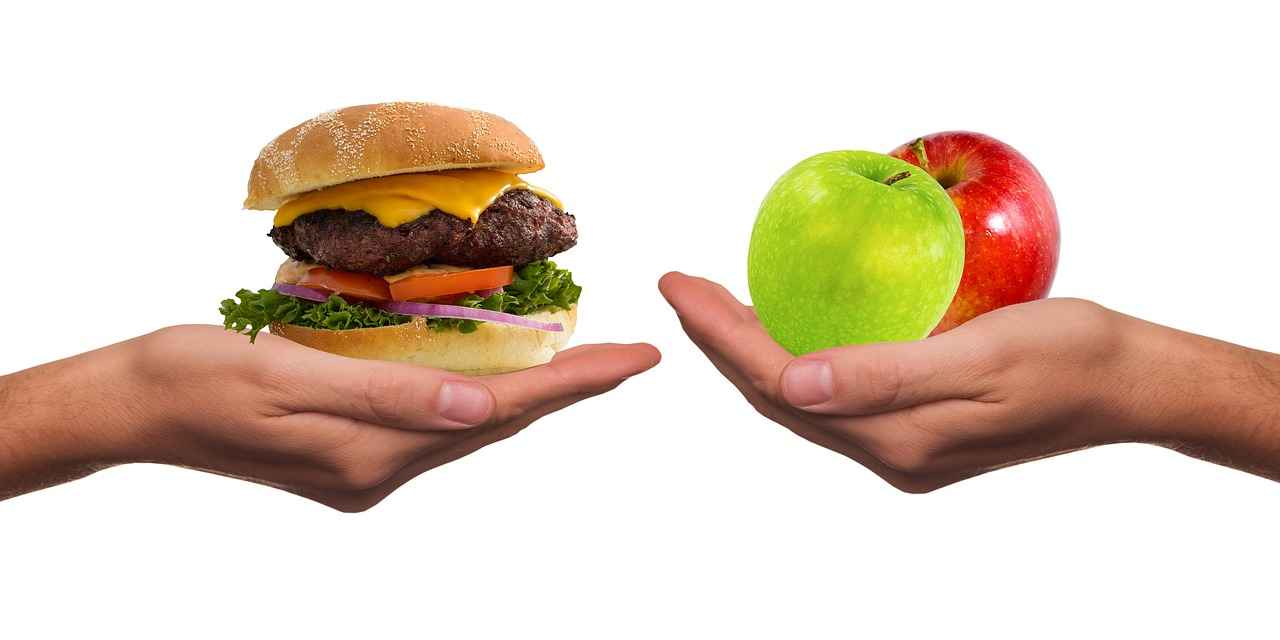
Effective Strategies for Losing Water Weight
When it comes to achieving your desired body shape, implementing specific strategies can significantly accelerate the process of losing water weight. Understanding the underlying factors contributing to water retention is crucial, as it allows you to tailor your approach effectively.
Hydration is one of the most paradoxical yet effective strategies for reducing water weight. It may seem counterintuitive, but drinking more water can actually help your body release the excess fluid it has been holding onto. When your body is dehydrated, it tends to retain water as a survival mechanism. Therefore, increasing your water intake can signal your body to flush out the excess.
Another effective method is to limit carbohydrate consumption. Carbohydrates are stored in the body as glycogen, which binds with water. By reducing your carb intake, you can deplete glycogen stores, leading to a rapid loss of water weight. This strategy is particularly useful for those looking to see quick results, especially before an event or occasion.
Incorporating natural diuretics into your diet can also aid in water weight loss. Foods like asparagus, beets, and celery have natural diuretic properties that can help your body eliminate excess fluids. Additionally, herbal teas, such as dandelion and green tea, are known for their diuretic effects and can be a pleasant way to enhance your hydration while promoting fluid elimination.
Exercise plays a pivotal role in losing water weight as well. Engaging in cardiovascular workouts, such as running, cycling, or swimming, promotes sweating, which can help the body release excess water quickly. Moreover, strength training not only builds muscle but also enhances metabolism, aiding in the gradual loss of water weight over time.
Another key aspect to consider is dietary choices. Foods high in sodium can significantly contribute to water retention. Processed foods, canned soups, and salty snacks are common culprits. By reducing your intake of these foods, you can effectively decrease water retention and improve your overall health.
Additionally, incorporating hydrating foods like cucumbers, watermelon, and leafy greens can help combat water retention. These foods not only provide essential nutrients but also promote better hydration, which can assist in flushing out excess fluids.
It’s also important to be mindful of hormonal influences, especially for women. Hormonal changes during menstruation can lead to temporary water retention. Understanding these cycles can help you manage expectations regarding weight fluctuations and tailor your strategies accordingly.
In summary, effectively losing water weight involves a combination of increasing hydration, limiting carbohydrates, incorporating natural diuretics, and maintaining a balanced diet while exercising regularly. By implementing these strategies, you can accelerate your journey towards achieving your desired body shape.
Increase Water Intake
When it comes to managing water retention, one of the most effective strategies is to increase your water intake. This might seem counterintuitive, as many people associate drinking more fluids with bloating and swelling. However, adequate hydration is crucial for maintaining a healthy balance of fluids in the body. In fact, drinking more water can actually help reduce water retention, allowing your body to release excess fluids instead of holding onto them.
When the body is dehydrated, it tends to retain water as a survival mechanism. This is because the body perceives a lack of water as a signal to conserve what it has. By increasing your water intake, you signal to your body that there is no need to hold onto excess fluid, which can lead to a decrease in water weight.
Incorporating more water into your daily routine can be easy and enjoyable. Here are some practical tips to help you increase your water consumption:
- Set Daily Goals: Aim for at least 8-10 glasses of water a day. You can adjust this based on your activity level and personal needs.
- Use a Water Bottle: Carry a reusable water bottle with you throughout the day. This makes it convenient to sip water regularly.
- Infuse Your Water: If plain water seems boring, try infusing it with fruits, herbs, or vegetables. Options like lemon, cucumber, or mint can make hydration more appealing.
- Track Your Intake: Use apps or journals to track your water intake. This can help you stay accountable and motivated.
- Drink Before Meals: Make it a habit to drink a glass of water before each meal. This not only helps with hydration but can also aid digestion.
In addition to drinking plain water, you can also boost your hydration levels through hydrating foods. Foods such as cucumbers, oranges, and watermelon have high water content and can contribute to your overall fluid intake. Including these foods in your diet can help you stay hydrated while providing essential nutrients.
Another important aspect of increasing water intake is to be mindful of your environment and lifestyle. During hot weather or after intense workouts, your body loses more fluids through sweat. It’s essential to replenish these lost fluids by drinking more water. Additionally, if you consume diuretic beverages like coffee or tea, be sure to counterbalance with extra water to avoid dehydration.
Ultimately, the key to effectively reducing water retention lies in maintaining a consistent and adequate intake of water. By making hydration a priority, you not only support your body’s natural functions but also pave the way for a healthier, slimmer appearance. Remember, the body is a complex system, and staying well-hydrated is a simple yet powerful way to promote overall health and wellness.
Limit Carbohydrate Consumption
Reducing carbohydrate intake is a widely recognized method for achieving rapid water weight loss. This approach is particularly effective because of the way our bodies store carbohydrates. When we consume carbs, they are converted into glycogen, which is then stored in our muscles and liver. Each gram of glycogen is bound to approximately 3-4 grams of water. Therefore, when we lower our carbohydrate intake, we not only deplete our glycogen stores but also release the water that was previously held in conjunction with it.
When you cut back on carbs, your body begins to use up its glycogen reserves for energy. As these reserves are depleted, the associated water is released and excreted, leading to a noticeable reduction in water weight. This process can result in a quick drop on the scale, which can be motivating for those looking to slim down.
It’s important to note that this kind of weight loss is primarily water weight and not fat loss. However, it can provide a sense of accomplishment and can be particularly beneficial for those preparing for events or looking to fit into specific clothing.
- Types of Carbohydrates: Not all carbohydrates are created equal. Focus on reducing refined carbs such as white bread, pastries, and sugary snacks, while still incorporating complex carbohydrates like whole grains, fruits, and vegetables in moderation.
- Monitoring Intake: Keeping a food diary can be an effective way to track your carbohydrate consumption. This practice helps you identify sources of excess carbs and make necessary adjustments.
- Gradual Reduction: Instead of an abrupt cut, consider gradually decreasing your carbohydrate intake. This approach can help your body adjust more comfortably and sustainably.
Additionally, pairing a low-carb diet with increased protein and healthy fats can enhance satiety and help maintain energy levels. Foods rich in protein, such as lean meats, fish, eggs, and legumes, can help you feel full longer, reducing the likelihood of cravings for high-carb snacks.
Hydration is also key during this process. Drinking plenty of water can assist in flushing out the excess sodium and toxins from your body, further aiding in the reduction of water weight. Aim to drink at least 8 glasses of water daily, and consider herbal teas or other low-calorie beverages as alternatives.
Incorporating regular physical activity can complement your efforts in reducing water weight. Engaging in cardiovascular exercises can promote sweating, which is another way to shed excess water. Strength training can also be beneficial, as it builds muscle, which in turn increases your metabolism and can help in the overall weight loss process.
While limiting carbohydrate consumption can lead to quick results, it is crucial to approach this strategy with a balanced mindset. Long-term health should always be a priority. Consulting with a healthcare provider or a nutritionist can provide personalized guidance to ensure that your dietary changes are safe and effective for your individual needs.

Natural Diuretics to Consider
When it comes to managing water weight, natural diuretics can play a significant role in helping the body eliminate excess fluid. These diuretics, which can be found in various herbs and foods, have been recognized for their ability to promote urination and enhance the body’s natural detoxification processes. Below are some effective natural diuretics that you can incorporate into your diet.
- Dandelion: This common weed is known for its potent diuretic effects. Dandelion leaves can be consumed in salads or as a tea, helping to increase urine production and reduce water retention.
- Parsley: Often used as a garnish, parsley is more than just a pretty addition to your plate. It acts as a natural diuretic, promoting kidney function and aiding in the removal of excess fluids.
- Hibiscus: Drinking hibiscus tea has been linked to lower blood pressure and increased urination. Its diuretic properties can help flush out excess water and toxins from the body.
- Watermelon: As the name suggests, watermelon is packed with water and is a natural diuretic. It helps hydrate the body while promoting urination, making it an excellent choice for reducing water weight.
- Cucumbers: Known for their high water content, cucumbers also contain nutrients that can help flush out toxins and reduce bloating.
- Celery: This crunchy vegetable is not only low in calories but also serves as a natural diuretic. It contains a compound called phthalides that may help relax the tissues of the artery walls, promoting better blood flow and fluid balance.
- Green Tea: Rich in antioxidants, green tea has diuretic properties that can aid in weight loss and improve metabolism. Regular consumption can help with fluid elimination.
- Beets: These vibrant root vegetables are known for their ability to promote urine flow and support liver function, which is essential for detoxification.
- Asparagus: Asparagus contains asparagine, an amino acid that acts as a natural diuretic. It helps to flush out excess water and can be easily added to various dishes.
Incorporating these natural diuretics into your diet can be a simple and effective way to manage water weight. However, it’s essential to maintain a balanced diet and consult with a healthcare professional if you have any underlying health conditions. By making small dietary changes and including these natural diuretics, you can support your body’s natural ability to eliminate excess fluids and achieve your weight management goals.
Caffeine as a Diuretic
Caffeine is widely consumed in various forms, including coffee, tea, and energy drinks. One of its notable effects is its ability to act as a natural diuretic. This means that caffeine can promote increased urination, which may help reduce the amount of excess water retained in the body. Understanding how caffeine functions in this capacity is essential for those looking to manage their water weight effectively.
When caffeine is consumed, it stimulates the kidneys, leading to enhanced urine production. This process occurs because caffeine inhibits the reabsorption of sodium in the kidneys, causing the body to expel more water. As a result, individuals may notice a temporary drop in weight due to the loss of excess fluids. However, it is important to approach caffeine consumption with caution.
Moderation is Key: While caffeine can assist in reducing water weight, excessive intake can lead to dehydration. Dehydration occurs when the body loses more fluids than it takes in, potentially leading to a range of health issues, including headaches, dizziness, and fatigue. Therefore, it is advisable to balance caffeine consumption with adequate water intake to maintain proper hydration levels.
For those seeking to use caffeine as a diuretic, consider the following practical tips:
- Limit High-Caffeine Beverages: While coffee and energy drinks can be effective, they can also be high in sugar and calories. Opt for black coffee or unsweetened tea to maximize benefits.
- Stay Hydrated: For every cup of caffeinated beverage consumed, drink an equal amount of water to counteract potential dehydration.
- Monitor Your Body: Pay attention to how your body responds to caffeine. If you experience increased heart rate or anxiety, it may be wise to reduce your intake.
It’s also worth noting that caffeine’s diuretic effects can vary from person to person. Some individuals may develop a tolerance to caffeine, which can diminish its diuretic properties over time. For these individuals, incorporating other natural diuretics, such as herbal teas or foods like cucumbers and watermelon, can be beneficial.
In addition to its diuretic properties, caffeine can also enhance workout performance. Engaging in regular physical activity can further aid in the loss of water weight, as exercise promotes sweating and increases metabolism. Therefore, combining caffeine consumption with a well-rounded fitness routine may yield optimal results.
In summary, caffeine can be a useful tool in managing water weight due to its diuretic effects. However, moderation is crucial to avoid dehydration and potential health risks. By balancing caffeine intake with proper hydration and maintaining a healthy lifestyle, individuals can effectively manage their water weight while enjoying the benefits of caffeine.
Herbal Teas for Water Loss
When it comes to natural methods for reducing water weight, herbal teas have gained popularity due to their potential diuretic properties. Among these, dandelion tea and green tea stand out for their effectiveness in promoting fluid elimination and supporting overall weight loss efforts.
Dandelion tea is derived from the leaves and roots of the dandelion plant, which has been used for centuries in traditional medicine. This herbal tea is celebrated not only for its unique flavor but also for its ability to stimulate the kidneys, enhancing the body’s natural ability to flush out excess fluids. By encouraging urination, dandelion tea can help reduce bloating and water retention, making it a valuable addition to any weight loss regimen.
On the other hand, green tea is well-known for its numerous health benefits, including its role in weight management. Rich in antioxidants and catechins, green tea can boost metabolism and promote fat oxidation. Additionally, its mild diuretic effect helps the body eliminate excess water, contributing to a leaner appearance. Regular consumption of green tea can also support hydration, which is essential for maintaining optimal bodily functions.
Incorporating these herbal teas into your daily routine can be simple and enjoyable. Here are some practical tips:
- Start Your Day with Tea: Begin your morning with a cup of dandelion tea to kickstart your metabolism and promote fluid elimination.
- Stay Hydrated: Pair your herbal tea consumption with adequate water intake to ensure your body remains hydrated while flushing out toxins.
- Experiment with Blends: Combine green tea with other herbs like mint or lemon for added flavor and benefits.
- Mind Your Timing: Enjoy your herbal teas throughout the day, but consider avoiding them close to bedtime to prevent nighttime trips to the bathroom.
In addition to their diuretic effects, herbal teas can also provide a sense of satiety, helping to curb unnecessary snacking. This can be particularly beneficial when trying to manage calorie intake while aiming for weight loss.
Moreover, the consumption of herbal teas can be a delightful ritual that contributes to overall well-being. Taking a moment to brew and enjoy a cup of tea can serve as a mindful practice, reducing stress and promoting relaxation, which are essential components of a healthy weight loss journey.
It is important to note that while herbal teas can aid in reducing water weight, they should not be viewed as a miracle solution. A balanced diet, regular exercise, and a healthy lifestyle are crucial for achieving sustainable weight loss. Additionally, individuals with certain health conditions or those taking specific medications should consult with a healthcare professional before significantly increasing their intake of herbal teas.
In conclusion, incorporating herbal teas like dandelion and green tea into your daily routine can support your efforts in losing water weight. Not only do they offer diuretic benefits, but they also contribute to overall health and wellness. Enjoying these teas can be a simple yet effective strategy in your journey towards a healthier and slimmer you.

Exercise and Its Role in Water Weight Loss
Exercise plays a crucial role in the process of losing water weight, acting as a natural catalyst for both sweating and metabolism. Engaging in regular physical activity not only promotes overall health but also enhances the body’s ability to manage fluid retention effectively.
When you exercise, your body temperature rises, leading to sweating. This natural process helps to expel excess water from the body. Sweating is the body’s way of regulating temperature, and during this process, you can lose a significant amount of water weight. This is particularly evident during high-intensity workouts, where the body can shed several pounds of water in a single session.
Understanding the Metabolic Boost
In addition to sweating, physical activity increases your metabolism. A higher metabolic rate means your body burns calories more efficiently, even at rest. This can contribute to a more balanced fluid level in your body. When you engage in regular exercise, your muscles utilize glycogen, which is stored with water. As glycogen levels decrease through exercise, the associated water is also released, leading to a reduction in water weight.
- Cardiovascular Workouts: Activities like running, cycling, and swimming are excellent for promoting sweating. These exercises elevate your heart rate and can significantly increase fluid loss.
- Strength Training: Lifting weights not only builds muscle but also boosts your resting metabolic rate. This means you continue to burn calories and release water even after your workout is complete.
Incorporating Exercise into Your Routine
To effectively lose water weight, it is essential to incorporate a mix of cardio and strength training into your weekly routine. Aim for at least 150 minutes of moderate aerobic exercise or 75 minutes of vigorous activity each week, along with two days of strength training. This balanced approach will enhance your body’s ability to shed excess water.
Hydration and Recovery
While it may seem counterintuitive, staying hydrated is vital for losing water weight. When your body is adequately hydrated, it is less likely to retain excess fluids. Drinking water before, during, and after exercise helps to maintain optimal hydration levels and supports recovery. It also encourages your body to release stored water, further aiding in weight loss.
Monitoring Progress
Tracking your exercise routine and water intake can help you understand how different factors affect your water weight. Keep a journal or use fitness apps to log your workouts and hydration levels. This will not only help you stay accountable but also allow you to identify patterns that may contribute to water retention.
In summary, regular physical activity is an effective strategy for losing water weight. By combining cardiovascular workouts with strength training and maintaining proper hydration, you can optimize your body’s ability to manage fluid levels. Remember, the key is consistency and a balanced approach to exercise and nutrition.
Cardiovascular Workouts
Engaging in is one of the most effective ways to shed excess water weight. These exercises, which include running, cycling, and swimming, elevate your heart rate and stimulate sweating, leading to the release of excess fluids from your body. Not only do these activities help in weight management, but they also contribute to overall physical health.
When you participate in cardiovascular activities, your body temperature rises, prompting your sweat glands to work harder. This process is essential for regulating body temperature and can lead to significant fluid loss. As you sweat, your body expels not just water but also toxins and excess sodium, which are common contributors to water retention. The more intense the workout, the more you sweat, and the more fluid you can lose.
Additionally, cardiovascular exercises promote improved circulation and metabolism. This enhanced metabolic rate can help in the quicker breakdown of glycogen stored in your muscles. Glycogen, which binds with water in the body, when depleted, leads to a reduction in water weight. Therefore, incorporating regular cardiovascular workouts into your routine can be a dual benefit: losing water weight while enhancing your overall fitness levels.
Here are some popular you can incorporate into your routine:
- Running: This high-impact exercise can burn calories rapidly and promote significant sweating.
- Cycling: Whether on a stationary bike or outdoors, cycling is an excellent low-impact cardio workout that keeps your heart rate up.
- Swimming: A full-body workout that not only engages multiple muscle groups but also promotes sweating, even in water.
- Jump Rope: A simple yet effective way to elevate your heart rate and engage in high-intensity cardio.
It’s important to note that while cardiovascular workouts are effective in promoting water loss, staying hydrated is crucial. Drinking adequate water before, during, and after your workout ensures that your body functions optimally and can help prevent dehydration. Ironically, maintaining proper hydration can also aid in reducing water retention, as it encourages your body to release excess fluids rather than hold onto them.
Incorporating a variety of cardiovascular exercises into your weekly routine can keep your workouts interesting and engaging. Aim for at least 150 minutes of moderate-intensity or 75 minutes of high-intensity cardio each week, as recommended by health experts. This not only supports your goal of losing water weight but also contributes to overall cardiovascular health.
In summary, cardiovascular workouts are a powerful tool in the quest to drop water weight quickly. By engaging in activities that promote sweating and enhance metabolism, you can effectively manage water retention and achieve your desired body shape. Remember to pair your workouts with a balanced diet and proper hydration for optimal results.
Strength Training Benefits
When it comes to fitness, strength training is often viewed primarily as a method for building muscle mass. However, its benefits extend far beyond mere aesthetics. Engaging in regular strength training not only enhances muscle strength but also plays a crucial role in boosting metabolism, which can significantly aid in the gradual loss of water weight over time.
One of the primary ways strength training contributes to weight loss is through the process of muscle hypertrophy. As you lift weights and challenge your muscles, they adapt by growing stronger and larger. This increase in muscle mass is pivotal because muscle tissue burns more calories at rest compared to fat tissue. Therefore, as you build muscle through strength training, your body’s resting metabolic rate increases, leading to a higher overall calorie expenditure, even when you are not exercising.
Moreover, strength training can lead to a phenomenon known as the afterburn effect, or excess post-exercise oxygen consumption (EPOC). This occurs when your body continues to burn calories at an elevated rate after a workout as it works to restore itself to its pre-exercise state. This effect can last for hours, contributing to further calorie and water weight loss.
In addition to boosting metabolism, strength training enhances fluid balance within the body. When you engage in resistance training, your muscles undergo micro-tears that require repair. This process not only builds muscle but also encourages your body to regulate fluid levels more effectively. As your body becomes more efficient at managing fluids, it can help reduce excess water retention.
Furthermore, strength training can improve your body’s hormonal profile. Regular resistance exercises have been shown to positively influence hormones such as insulin and cortisol, which play significant roles in fluid retention. By optimizing these hormonal levels, strength training can help mitigate the factors that lead to excessive water weight.
Incorporating strength training into your fitness routine also has psychological benefits. It can boost your confidence and enhance your body image, leading to improved motivation for maintaining a healthy lifestyle. This mental aspect is crucial, as a positive mindset can encourage you to make better dietary choices, further supporting your efforts in losing water weight.
To maximize the benefits of strength training, consider incorporating a variety of exercises that target all major muscle groups. Compound movements such as squats, deadlifts, and bench presses are particularly effective as they engage multiple muscle groups simultaneously, providing a more comprehensive workout.
Additionally, aim for consistency. Engaging in strength training at least two to three times a week can yield significant benefits over time. Remember to pair your strength training with adequate hydration, as this is vital in supporting your body’s recovery and metabolic processes.
In conclusion, strength training is a powerful tool not only for building muscle but also for enhancing your metabolism and promoting the gradual loss of water weight. By understanding and leveraging these benefits, you can achieve your fitness goals more effectively and sustainably.

When to Seek Medical Advice
Water retention, also known as fluid retention or edema, is a condition where excess fluid accumulates in the body’s tissues. While it is often benign and temporary, it is essential to understand when it is necessary to seek medical advice. This section will delve into the signs that indicate a potential health concern and highlight the importance of consulting a healthcare professional.
Water retention can occur for various reasons, including dietary choices, hormonal changes, or certain medical conditions. Although occasional fluid retention is common and often harmless, persistent or severe cases may signify underlying health issues that require attention.
Recognizing the symptoms associated with serious conditions is crucial. Here are some key signs that should prompt a visit to a healthcare provider:
- Unexplained Swelling: If you notice swelling in your legs, ankles, or other parts of your body that appears suddenly and without an obvious cause, it’s essential to consult a doctor.
- Pain or Discomfort: Experiencing pain, tenderness, or discomfort in the swollen areas may indicate a more serious condition that requires medical evaluation.
- Sudden Weight Gain: Rapid weight gain, especially if it occurs within a short period, can be a red flag for fluid retention related to heart, kidney, or liver issues.
- Shortness of Breath: If water retention is accompanied by difficulty breathing or chest pain, immediate medical attention is necessary, as it could signal heart problems.
- Changes in Urination: Noticeable changes in urination frequency or appearance, such as dark or cloudy urine, may indicate dehydration or kidney issues.
Persistent water retention can be a symptom of various health conditions, including:
- Heart Disease: Conditions affecting heart function can lead to fluid accumulation.
- Kidney Disorders: Impaired kidney function can hinder the body’s ability to eliminate excess fluid.
- Liver Disease: Liver conditions can disrupt the balance of fluids in the body, leading to swelling.
- Hormonal Imbalances: Conditions such as hypothyroidism or hormonal changes during menstruation can lead to temporary water retention.
If you experience any of the above symptoms, it is vital to consult a healthcare professional for a thorough evaluation. They may perform diagnostic tests, such as blood tests or imaging studies, to determine the underlying cause of the fluid retention. Early diagnosis and treatment can significantly improve outcomes and prevent complications.
In addition to addressing the symptoms, a healthcare provider can offer personalized advice on managing water retention through lifestyle changes, dietary adjustments, or medication if necessary. Remember, while water retention may often be harmless, being proactive about your health is essential for overall well-being.
Signs of Serious Conditions
When it comes to water retention, it’s essential to be aware of the signs that may indicate more serious health conditions. While occasional swelling or temporary weight gain can be attributed to diet or lifestyle changes, persistent symptoms should not be ignored. This section outlines the key signs that warrant immediate medical attention.
Symptoms such as swelling, pain, or sudden weight gain may signal serious conditions like kidney or heart issues. These symptoms can manifest in various ways, including:
- Localized Swelling: This can occur in the legs, ankles, or feet and may indicate issues with circulation or fluid balance.
- Generalized Swelling: When swelling affects the entire body, it may suggest a systemic issue, such as heart failure or liver disease.
- Unexplained Weight Gain: Rapid weight gain, especially if more than 2-3 pounds in a day or several pounds over a week, can be a sign of fluid retention due to heart or kidney problems.
- Shortness of Breath: If swelling is accompanied by difficulty breathing, it may indicate a serious condition requiring immediate medical evaluation.
- Pain or Discomfort: Pain in the chest, abdomen, or joints alongside swelling can point to serious health concerns.
Persistent symptoms of water retention can be indicative of various medical conditions, including:
- Kidney Disease: The kidneys play a crucial role in fluid balance. Dysfunction can lead to fluid buildup.
- Heart Failure: The heart’s inability to pump effectively can cause fluid to accumulate in the body.
- Liver Disease: Liver dysfunction can disrupt fluid regulation, leading to swelling and weight gain.
- Thyroid Disorders: An underactive thyroid can contribute to water retention and weight fluctuations.
If you experience any of the symptoms mentioned above, it is crucial to seek medical advice promptly. Early intervention can significantly improve outcomes and help manage potential health issues effectively. A healthcare professional will typically conduct a thorough evaluation, including:
- Physical Examination: Assessing swelling and other physical signs.
- Blood Tests: Evaluating kidney and liver function, as well as checking for hormonal imbalances.
- Imaging Studies: Ultrasounds or X-rays may be used to visualize internal organs and fluid accumulation.
In summary, being vigilant about the signs of serious conditions related to water retention is crucial for maintaining overall health. If you notice any concerning symptoms, do not hesitate to consult a healthcare professional. Early detection and intervention can lead to better management of underlying health issues and improve your quality of life.
Managing Chronic Water Retention
Chronic water retention, also known as edema, can be a frustrating condition for many individuals. It often leads to discomfort, swelling, and can impact overall health and well-being. Understanding the underlying causes and seeking appropriate treatment is essential for effective management.
Water retention occurs when excess fluid builds up in the body’s tissues. This can result from various factors, including dietary habits, hormonal changes, and underlying medical conditions. For those experiencing chronic symptoms, it is crucial to consult a healthcare provider who can offer personalized advice and treatment options.
Identifying Underlying Causes
One of the first steps in managing chronic water retention is identifying its underlying causes. Common factors include:
- High Sodium Intake: Consuming excessive amounts of sodium can lead to fluid retention. Processed and fast foods are often high in sodium, making it important to read labels and choose lower-sodium options.
- Hormonal Fluctuations: Hormonal changes, particularly during the menstrual cycle or pregnancy, can cause temporary water retention. Tracking these cycles can help manage expectations.
- Medical Conditions: Conditions such as heart, kidney, or liver disease can lead to chronic water retention. It is vital to address these health issues with a healthcare provider.
Consulting a Healthcare Provider
If you find yourself struggling with persistent water retention, it is essential to consult a healthcare provider. They can conduct a thorough evaluation, including blood tests and imaging studies, to determine the root cause of your symptoms. Based on their findings, they may recommend:
- Dietary Adjustments: A nutritionist may suggest a balanced diet low in sodium and rich in potassium, which can help balance fluid levels in the body.
- Medications: In some cases, diuretics may be prescribed to help the body eliminate excess fluid. However, these should only be taken under medical supervision.
- Exercise Recommendations: Regular physical activity can improve circulation and help reduce fluid retention. A healthcare provider may suggest specific exercises tailored to your needs.
Home Remedies and Lifestyle Changes
In addition to professional medical advice, there are several home remedies and lifestyle changes that can aid in managing chronic water retention:
- Stay Hydrated: Ironically, drinking enough water can help reduce water retention. Proper hydration encourages the body to release excess fluids instead of holding onto them.
- Incorporate Natural Diuretics: Foods such as cucumbers, asparagus, and watermelon can act as natural diuretics, helping to flush out excess fluids.
- Elevate Your Legs: If swelling occurs in the legs or feet, elevating them can help reduce fluid buildup.
Monitoring Symptoms
Keeping track of your symptoms can provide valuable information to your healthcare provider. Note any changes in swelling, pain levels, or weight fluctuations. This information can help guide treatment decisions and adjustments.
In conclusion, managing chronic water retention requires a multifaceted approach that includes professional guidance, dietary changes, and lifestyle modifications. With the right support and strategies, individuals can effectively address their symptoms and improve their quality of life.
Frequently Asked Questions
- What is water weight?
Water weight refers to the excess fluid your body retains, which can fluctuate due to factors like diet, hydration, and hormonal changes. It’s not actual fat but can impact your overall weight.
- How can I quickly lose water weight?
You can lose water weight quickly by increasing your water intake, reducing sodium and carbohydrate consumption, and incorporating natural diuretics like herbal teas and caffeine into your routine.
- Are there any foods that help reduce water retention?
Absolutely! Foods high in water content, such as cucumbers, watermelon, and leafy greens, can help flush out excess fluids and keep you hydrated, aiding in reducing water weight.
- Is it safe to lose water weight rapidly?
While losing water weight can be safe, it’s important to do so carefully. Rapid loss can lead to dehydration or electrolyte imbalances, so always listen to your body and consult a healthcare professional if unsure.
- When should I be concerned about water retention?
If you experience persistent swelling, sudden weight gain, or pain, it may indicate a serious condition. In such cases, seeking medical advice is crucial to rule out any underlying health issues.





